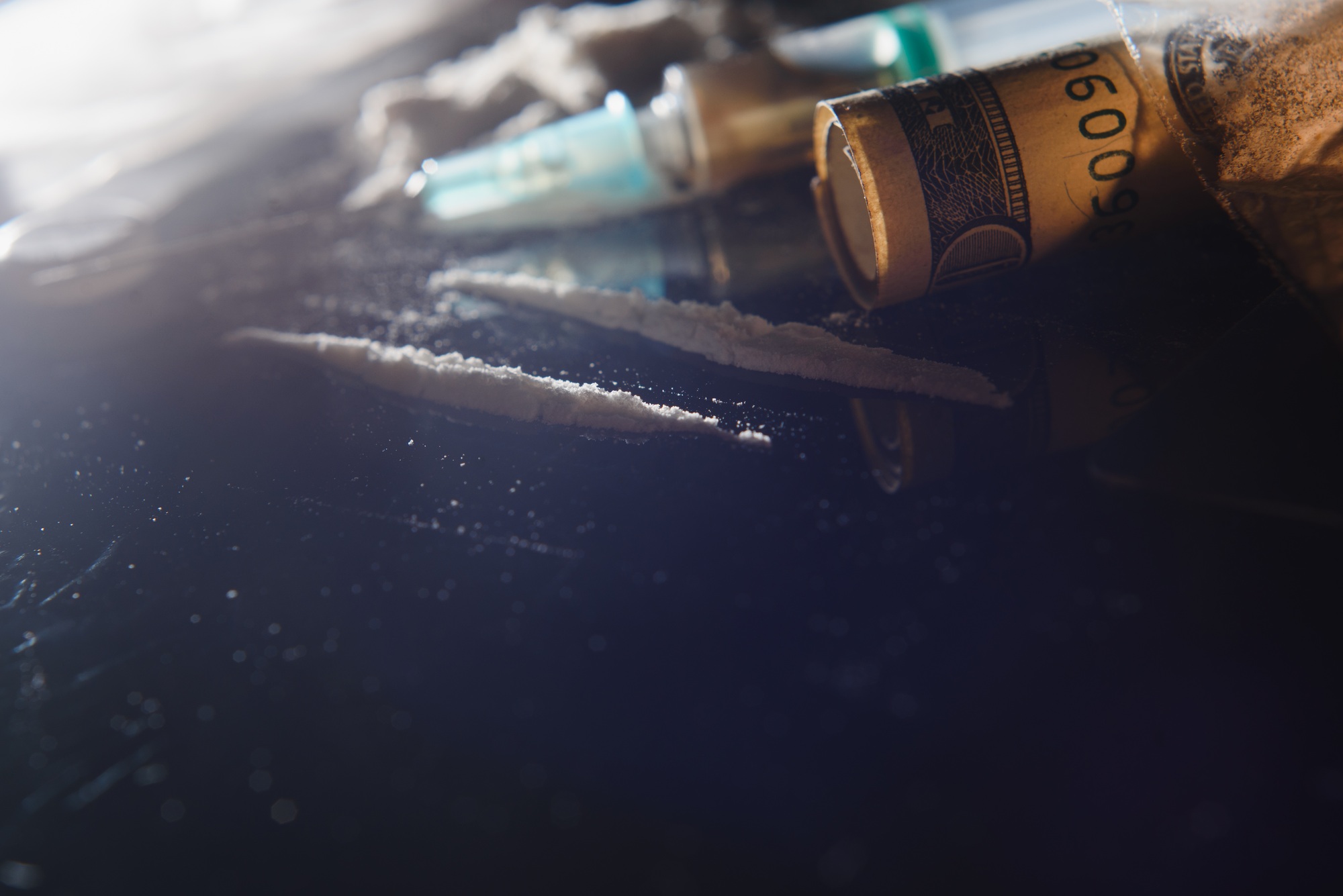
If you need your legal rights protected, contact us now.
Do You Need a Lawyer for Drug Charges?
- Ensures every legal defense is explored.
- Maximizes your chances of a reduced criminal charge or case dismissal.
- Provides knowledgeable guidance through the criminal justice system.
Understanding Drug Charges in Pennsylvania
Common Drug Offenses in Pennsylvania
Possession
- A typical first offense can carry up to 1 year in jail and fines up to $5,000 (though certain offenses can reach higher fines).
- Subsequent convictions carry increasingly harsh punishments, including potential prison time.
Possession With Intent to Deliver (Distribution)
Manufacturing
Trafficking
- Charges range from felonies with possible multi-year sentences to very large fines.
- 18 Pa.C.S. § 7508 sets out mandatory minimum sentences depending on drug type and weight.
Potential Penalties
- Felony of the First Degree: Up to 20 years in prison and fines up to $25,000
- Felony of the Second Degree: Up to 10 years in prison and fines up to $25,000
- Felony of the Third Degree: Up to 7 years in prison and fines up to $15,000
- Misdemeanor of the First Degree: Up to 5 years in jail and a fine up to $10,000
- Misdemeanor of the Second Degree: Up to 2 years in jail and a fine up to $5,000
- Misdemeanor of the Third Degree: Up to 1 year in jail and a fine up to $2,000
If you need your legal rights protected, contact us now.
How a Drug Crimes Defense Attorney Can Help
Challenging the Arrest and Evidence
- Was the stop, search, or seizure lawful?
- Did the police have a valid search warrant?
- Can any evidence be suppressed due to constitutional violations?
Bail and Pre-Trial Advocacy
- Arguing for reduced or minimal bail.
- Ensuring you remain free pending trial whenever possible.
Independent Investigation
- Reviewing and challenging the state’s evidence and methods.
- Gathering witnesses or forensic proof to contradict the prosecution’s claims.
Negotiating Plea Deals
- Evaluating whether a plea bargain is in your best interest.
- Working to reduce charges or sentencing exposure through negotiations.
Trial Representation
- If your case goes to trial, holding the prosecution to its burden of proving guilt “beyond a reasonable doubt.”
- Jury selection that ensures an impartial panel by carefully questioning, and, when appropriate, striking prospective jurors who may harbor biases.
- Presenting a strong, strategic defense.
Take the Next Step: Schedule a Consultation Today
If you or someone you love is facing drug charges in Central Pennsylvania, including Camp Hill, Harrisburg, and throughout Central Pennsylvania reach out to Grace Legal Offices. Our dedicated legal team will review your case, explain your rights, and chart a path forward.
Don’t wait. Early intervention by an experienced drug defense lawyer can significantly affect the outcome of your case. Contact us now for honest legal advice to protect your rights and future.
If you need your legal rights protected, contact us now.
Frequently Asked Questions
How do you get a possession criminal charge dismissed in PA?
Several strategies may lead to the dismissal or reduction of drug possession charges in Pennsylvania:
- Challenging the Search and Seizure: If law enforcement did not have probable cause or a valid warrant, any evidence obtained could be suppressed.
- Lack of Sufficient Evidence: The prosecution must prove you “knowingly and intentionally” possessed the substance. If they cannot, the charge may be dismissed.
- Diversion Programs: Certain first-time offenders may qualify for alternative or diversionary programs, such as Accelerated Rehabilitative Disposition (ARD). Completing these programs can lead to a dismissal of charges.
- Legal Prescriptions or Defenses: If the substance was lawfully prescribed, your attorney can present legitimate possession as a defense.
How long do you go to jail for drug possession in PA?
For simple possession (a first offense), you could face:
- Up to 1 year in jail
- Fines ranging from $5,000 to possibly more, depending on the controlled substance
Repeated offenses or aggravating factors, like larger quantities or weapons, can lead to felony charges with penalties that include multiple years in prison.
How much is a lawyer for simple possession?
Legal fees vary widely based on:
- Complexity of Your Case: More complex cases (multiple charges, prior offenses) often require more time and resources.
- Attorney’s Experience: Lawyers with extensive experience may charge higher rates.
- Geographic Location: Costs can differ between urban and rural areas.
It is best to schedule a consultation to discuss fee structures and payment plans. Many defense attorneys offer flat fees or hourly rates for simple possession cases. If you cannot afford an attorney, a public defender will be assigned to your case.
How to win a drug possession case?
“Winning” can mean different outcomes: dismissal of charges, acquittal at trial, or negotiating a favorable plea. Key factors include:
- Effective Legal Representation: An attorney reviews the arrest report, evidence, and constitutional issues (search and seizure).
- Strong Defense Strategies: Challenging the prosecution’s proof of “knowing possession,” investigating witness credibility, and presenting exculpatory evidence.
- Negotiation with Prosecutors: Sometimes a plea bargain that reduces charges or avoids jail can be a strategic “win,” particularly if the evidence against you is strong.
Do first-time drug offenders go to jail in PA?
Not necessarily. While possible, first-time offenders may have alternatives:
- Accelerated Rehabilitative Disposition (ARD): A diversion program that allows charges to be dismissed upon successful completion.
- Probation or Community Service: Courts sometimes impose non-incarceration sentences if the offender demonstrates a low risk of reoffending.
- Drug Treatment Programs: These can be required instead of or alongside incarceration.
What is the minimum sentence for a drug charge?
Minimum sentences depend on the type of charge:
- Simple Possession (Misdemeanor): No mandatory minimum in many cases; a first-time offender may face probation, fines, or up to 1 year in jail.
- Trafficking or PWID (Felony): Certain offenses under 18 Pa.C.S. § 7508 carry mandatory minimum sentences, often starting at 1 to 2 years, but can be higher depending on drug type (heroin, fentanyl, methamphetamine, marijuana, prescription medication, etc.) and quantity.
What is the most common criminal illegal drug charge?
The most frequently charged offense in Pennsylvania is simple possession, the unlawful possession of a controlled substance for personal use. This is partly because it requires relatively little proof on the prosecutor’s side (possession + awareness), making it the charge filed most often when police officers find individuals with small amounts of drugs.


